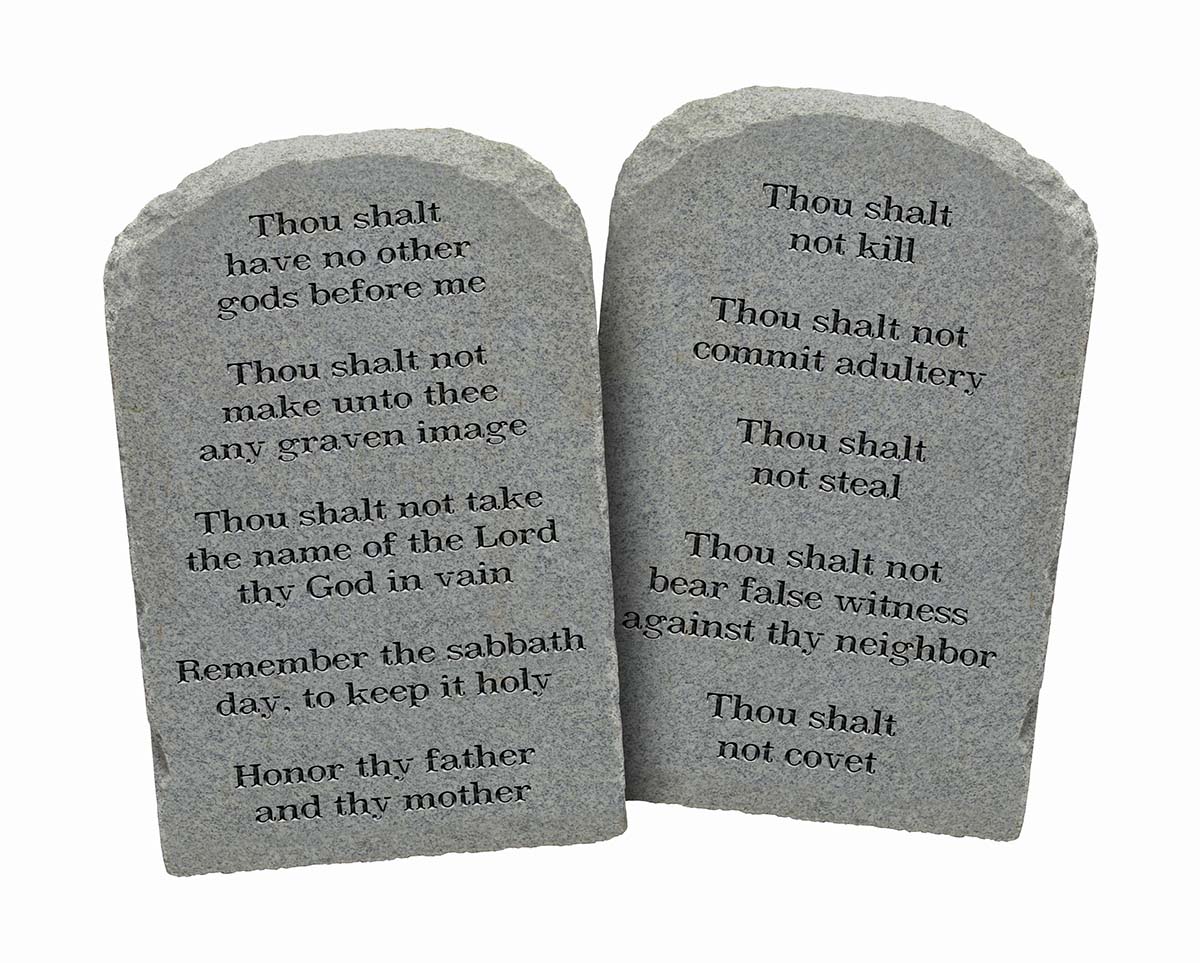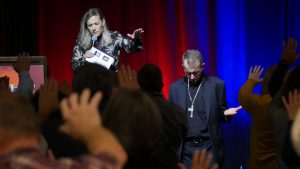
Moses Ten Commandments Stones Isolated on White Background.
Question:
How do I answer others who complain that the Catholic Church is all about rules?
Answer:
It’s unfortunately the case that many people—including many Catholics—believe that the Church is overly focused on “rules,” particularly when it comes to questions of morality. There are a number of ways to respond to these sorts of questions and complaints; this month I’m going to focus on a couple possible responses.
First, it’s worth noting that while it can seem to some that the Church is all about “no”—what we can’t or shouldn’t do—the truth of the matter is that ultimately, the Church is about “yes”: about our yes to God and to our neighbor, about our love for Him and them, and about their true happiness and our own. All of our recent popes have been highlighting the importance of showing that the Catholic life is not one of toil or drudgery but of joy and fulfillment. Pope Francis’ most important document, for example, is tellingly titled “The Joy of the Gospel.” The “yes” of our faith was a major theme of Pope Benedict, and St. Pope John Paul II repeatedly spoke about and lived a life of profound Christian joy. All of the “no’s” of the Church, then, are about enabling and empowering us to say “yes” more easily.
Relatedly, it’s important people understand the Church does not “make up” sins, that popes, bishops and priests do not “decide” to make certain things sinful. Instead, when the Church teaches certain actions are sinful, she is warning us that they are spiritually dangerous to us. Just as a parent tells a small child not to touch a hot iron or not to cross a busy street out of love and concern, so, too, does the Church warn us that certain actions—no matter how appealing they might seem—are harmful to us. That’s what a sin is: something which is harmful to us, at least on the spiritual level (and often on the emotional and physical levels as well).
It’s even more important to remember that the Church doesn’t even make those decisions on her own; all of the Church’s teachings come from God Himself, in either what He has explicitly revealed in Scripture or Tradition or in what is implicitly found within those teachings. In all of her teachings, including those on morality, the Church simply echoes the Blessed Virgin Mary, who at the wedding feast of Cana said to “do whatever He tells you” (John 2:5).
Now, there’s no doubt that initially, it can be hard to live in the way the Church proposes, the way that God teaches; again, sin can often appear to be pleasing to us. If we think about other aspects of our lives, though, we see that in the vast majority of cases—if not all of them—doing what is best for us is often hard to do, at least at the beginning. Whether it’s about eating less junk food, exercising more, spending meaningful time with family or getting out of debt, doing what we know is best for us isn’t always easy. And yet, we know that we will be better off if we persevere and push through the struggles and difficulties.
The same is true in our spiritual life. Living rightly, living according to the Church’s teachings, living in Christ and His truth and love, can certainly be a struggle. But it remains the best way to live, the way that will lead to true peace, joy, happiness and fulfillment. Contrary to what many think, the Church’s teachings are not senseless; in fact, they are completely sensible, even the most sensible, the most rational, the most intelligent way to live, as we see when we look at them closely.
May we all live our faith resolutely and with joy, that others might see the Catholic way of life and be drawn to it.
 Be sure to check out the additional resources at sfcatholic.org/answer. If you have a question you need an answer to, email rkranz@sfcatholic.org.
Be sure to check out the additional resources at sfcatholic.org/answer. If you have a question you need an answer to, email rkranz@sfcatholic.org.
Chris Burgwald holds a doctorate in theology and is the director of Adult Discipleship and Evangelization for the Diocese of Sioux Falls.


